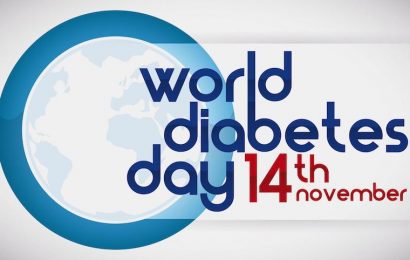Low-carbohydrate diets have long been a matter of contention within the diabetes community. Nowhere is this truer than here at DiabetesSelfManagement.com. Our very first week of Diabetes Flashpoints featured opposing essays on low-carb diets, and the wisdom of restricting carbohydrate intake has been debated in The Diabetes Self-Management Blog since much earlier. Advocates of carbohydrate restriction often argue that it can aid in weight loss as well as in blood glucose control, and therefore potentially reduce the risk of long-term diabetes complications.
Now, a new study comparing a low-carb Atkins-style diet with a calorie-restricted low-fat diet has entered the debate. Published in the journal Annals of Internal Medicine on August 3, the study’s goal was primarily to compare the effects of the two diets on weight loss. But it also looked at blood triglyceride and cholesterol levels, blood pressure, ketones in the urine, bone mineral density, body composition (ratio of muscle to fat), and any potential side effects. Members of both groups were also given identical “intensive behavioral treatment” to aid in weight loss.
After one year, researchers found that both groups experienced an identical pattern of weight loss, averaging 11 kilograms (24 pounds), or 11% of body weight. After two years, participants in both groups had gained back some weight, for an average of 7 kilograms (15 pounds) of weight loss since the start of the study, or 7% of body weight. There were also no differences between the two groups in body composition or bone mineral density. However, the low-carb group saw a greater increase in HDL (high-density lipoprotein, or “good”) cholesterol than the low-fat group did throughout the study, with its average level climbing by 23% over the two-year study period. During the first six months of the study, the low-carb group also had greater reductions in diastolic blood pressure and triglycerides than the low-fat group did. However, according to an article on the study in The New York Times, the low-carb group also had greater side effects during this period, which included bad breath, constipation, dry mouth, and hair loss. The low-fat group also experienced a greater reduction in LDL (low-density lipoprotein, or “bad”) cholesterol during the first six months.
People with diabetes or abnormal lipid levels were excluded from this study, and the effect of the two diets on blood glucose levels was not measured. For many people with diabetes, this means the absence of information crucial to their decision about what type of diet to follow. The study’s focus on weight loss mirrors the American Diabetes Association’s position on low-carb diets, which touts their potential to aid in weight loss but not their impact on blood glucose levels, and declines to endorse the low-carb approach over other weight-loss options.
What to do you think — have you tried either a low-carb or a low-fat diet for weight loss? Did you find it to be effective and/or satisfactory? In your experience, are there reasons besides weight loss to follow either a low-carb or a low-fat diet? Have you found any other special diet — such as one focusing on foods with a low glycemic index — to be helpful in managing your diabetes? Leave a comment below!




